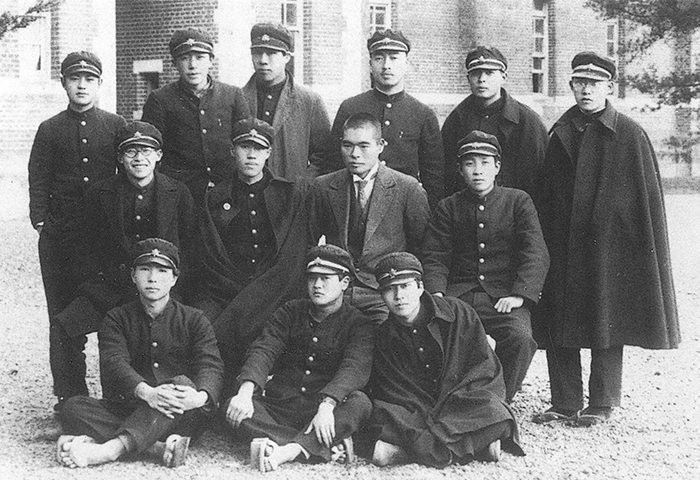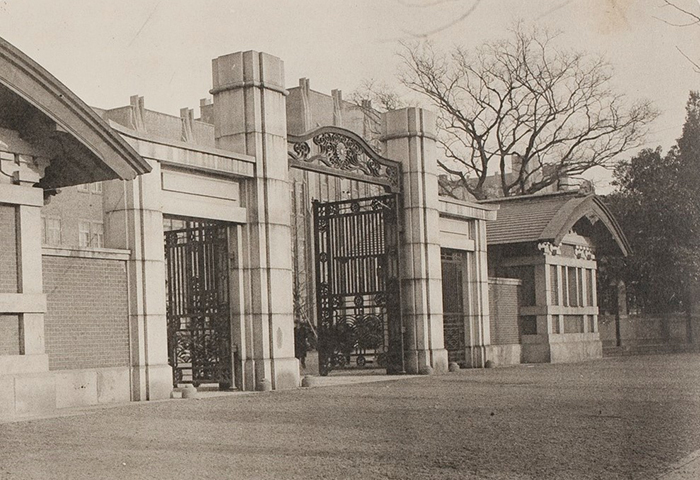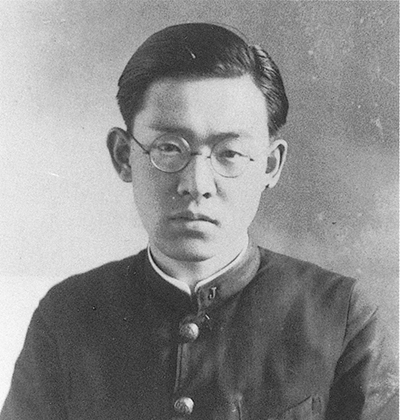In April 1928, I entered the Fifth High School (currently Kumamoto University). I was always better at science subjects like math and physics, but I was more interested in philosophy, so I chose the humanities.
Although I graduated top of my class at middle school, Fifth High gathered outstanding students from all over Japan, so a country bumpkin like me had trouble keeping up. There was especially a gap in foreign languages. Since I hated to lose, I studied English intensely to overcome the language handicap. I not only studied the textbooks before and after classes, but also subscribed to an English-language newspaper that I read voraciously every day.
But studying wasn't the only thing I did. I was a member of the judo club in my first year, and I went out drinking and singing with friends. Fifth High was a boarding school, so sometimes we climbed over the wall to get into the dorm after curfew.
I was interested in the Nishida philosophy, so my philosophy teacher advised me to go to Kyoto Imperial University. I considered it, but in the end I decided to study law at Tokyo Imperial University.
In the third trimester of my third year, I studied hard every day and barely slept. I put a thin pile of cushions behind me as I studied. Whenever I became too tired, I just leaned back and took a nap. When I woke up, I started studying again. Day after day was like that.
At the time, you could get into faculties of law without an entrance exam as long as you graduated from high school, except for Tokyo Imperial University. Only Tokyo Imperial University required applicants to pass exams on English writing and English-to-Japanese translation.
On exam day, unfortunately, I had a fever of nearly 40 degrees. I was exhausted form studying so hard, and the long trip to Tokyo made me catch a cold.
 At Kumamoto prefectural daigo kotogakko (Back row right, 1931)
At Kumamoto prefectural daigo kotogakko (Back row right, 1931)
I took some aspirin, but still felt dizzy during the exams. Although there was only one word I didn't know in each of the exams, I didn't feel confident at all. Unable to bear staying in Tokyo for the announcement of results, I asked an acquaintance to report it to me and returned to my hometown.
The night before the announcement, I tossed and turned without sleeping a wink. On the day, I felt like a death-row inmate as I waited for the telegram. When it finally came, I opened it with trepidation to see the word "congratulations." I couldn't believe it for a moment, but then it struck me. "I passed!"
I had managed to get into the Faculty of Law at Tokyo Imperial University after a great effort, but it wasn't all that interesting to me at first. I guess I was still absorbed in Indian philosophy and the Nishida philosophy.
But then I realized that all my effort to get into the school would be meaningless, so I made up my mind to study in earnest. During lectures, I sat in the front row, and between lectures, I went to the library and pored over books on law. My personality is such that once my mind is set on something, I do it thoroughly. In later years, when I set up a joint ventures, licensed technology, or entered a partnership, I would always thoroughly scrutinize the contracts in advance.
As I studied intensely, I finally began to find law to be interesting. In particular, the jurisprudence of Prof. Kenzo Takayanagi was so logical, it suited my nature of liking math and physics. By my third year, I started thinking about staying at the university and becoming a professor of jurisprudence.
Then one day, I overheard some assistants arguing at a noodle shop near the university, and it gave me second thoughts. They were talking about how the noodles were good, but you needed two servings to be full. Two bowls of noodles cost 16 sen, while a huge serving of rice at the campus cafeteria cost 15 sen. They were arguing about that one-sen difference: go for taste or go for quantity?
These were assistants, who aspired to be professors, having a serious debate over such a trifling thing, because their salaries were so low. I realized that I wanted to live without worrying about a one sen difference, so I decided to enter the business world.
 Main gate of Tokyo University(1930s)
Main gate of Tokyo University(1930s)
 Student at Tokyo University(1934)
Student at Tokyo University(1934)

